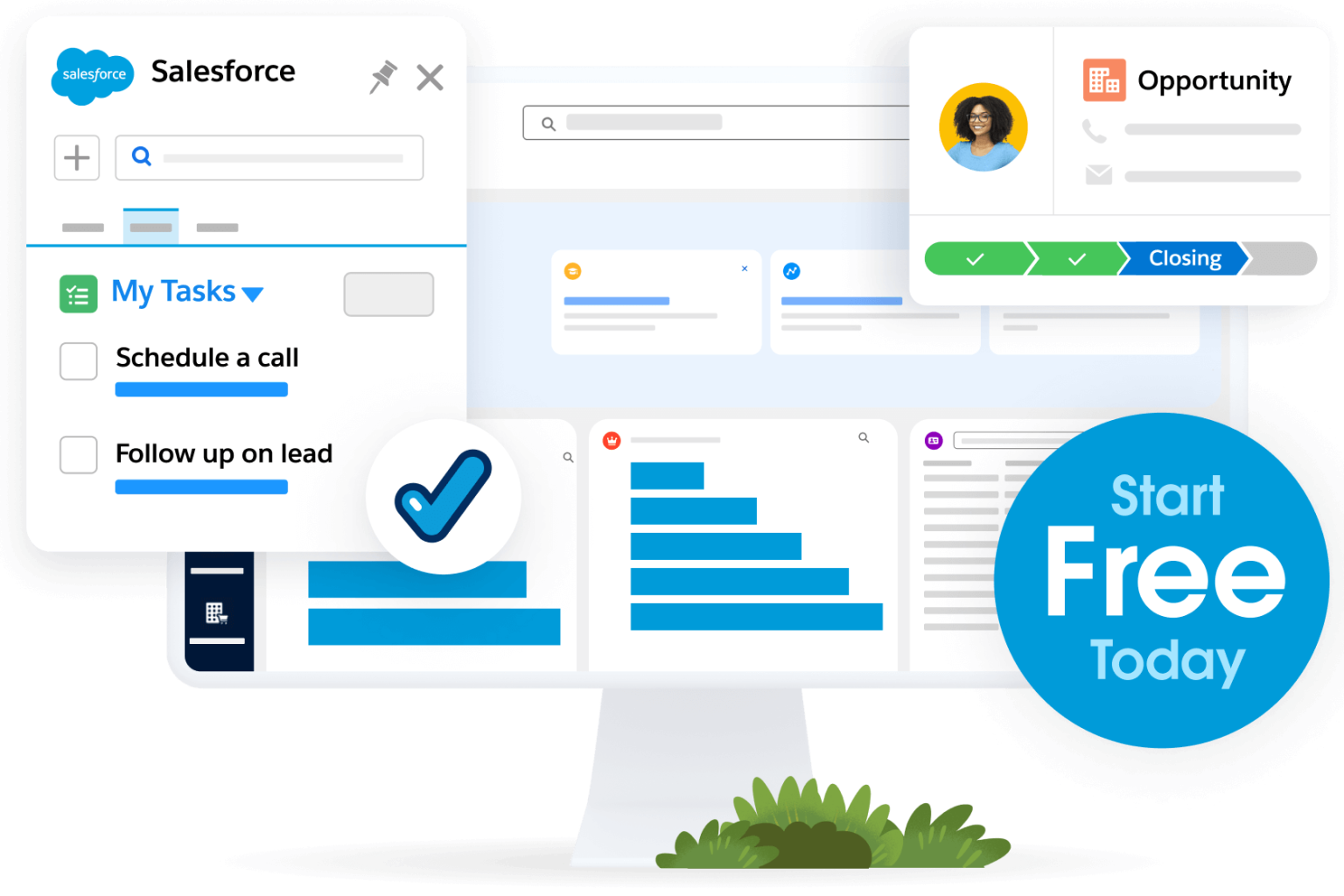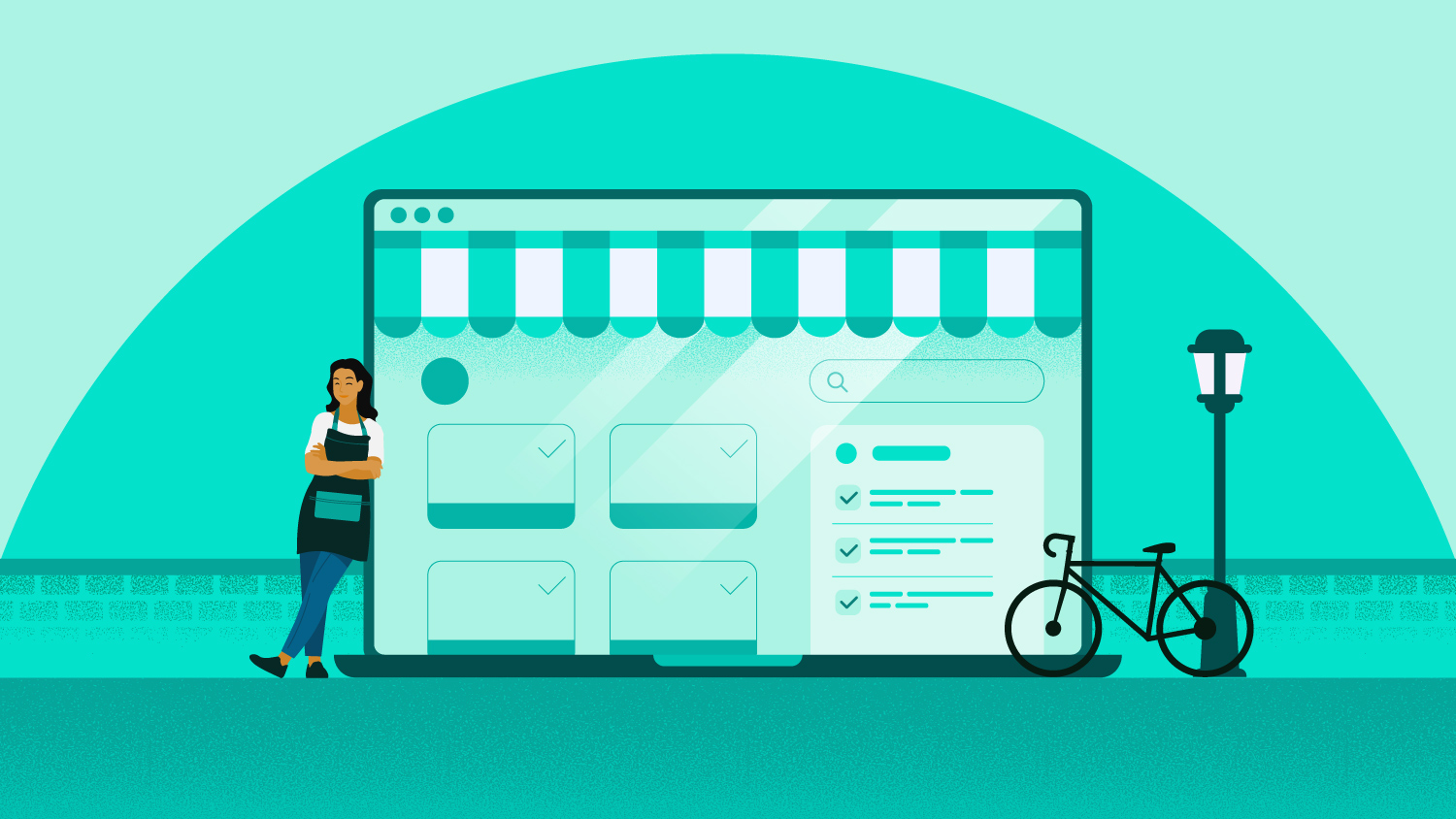Key Takeaways
Online holiday shopping is a goldmine for businesses all over the globe — and this season, especially Small Business Saturday, it’s your turn to cash in. While major retailers flood inboxes with generic promotions, small and medium businesses (SMBs) have a real advantage. You can connect authentically and create relatable experiences for your users.
Have a solid plan in place before the rush hits, so you’re ready to welcome holiday shoppers and turn them into year-round customers. Luckily, artificial intelligence (AI) tools are your reindeer and elves. They can effectively help you handle sales, marketing, and customer service — so you can run your ecommerce business and still enjoy the holiday season. And now, grab a cup of hot cocoa and let’s plan.
What you’ll learn:
What is Small Business Saturday?
Small Business Saturday is an annual event that encourages consumers to shop locally and support small businesses—both brick-and-mortar and online—on the Saturday immediately following Thanksgiving in the United States. Launched by American Express in 2010, the day is strategically positioned between Black Friday (focused on large retailers) and Cyber Monday to shift holiday spending toward independent entrepreneurs, helping to fuel local economies and communities.
This initiative has grown into a significant event, prompting small business owners to prepare special promotions and marketing campaigns. Get some tips to make the most of Small Business Saturday and strategies like digital storefront optimization and using AI for customer care to convert visibility into sales.
Why your ecommerce shop matters this holiday season (and every season)
For Small Business Saturday and beyond, we are seeing SMBs light up the market with their emerging brands. Global online sales are growing at 4% year-over-year (YoY), and brands across the world are competing for customer attention. Hard truth? Shoppers will have endless options, but you’ll have to work harder than ever to keep them engaged. That’s why so many startups begin planning long before pumpkin spice hits the shelves.
If you own an ecommerce business, you already know this: most research and gift discovery starts online. According to the latest Salesforce State of Commerce Report, at least 53% of customers engage with businesses online. Optimizing your store for the festive rush will help capture this market. Make it easy for holiday shoppers to discover you beyond your ecommerce website. This includes getting seen in Google search, social media platforms, or large language models (LLMs), such as ChatGPT or Gemini. This is particularly beneficial for SMBs as it can boost online visibility and get your brand out there.

A solid strategy, and the right tools can help you compete effectively with large enterprises. Good news? It’s easy to get started — even without a fancy setup. In fact, you don’t even need a website to sell online. Try out a customer relationship management (CRM) tool like Starter Suite to set up shop without starting from scratch. Manage your products, process orders, and nurture customer relationships all in one place — perfect if you need to move fast without getting bogged down in technical details.
Sell More With Salesforce For Small Business
Top four strategies to get Black Friday sales to your online store
All set to get started? Here are four proven marketing strategies that’ll guide you this holiday season. Get more traffic, conversions, and keep people coming back long after the tinsel comes down.
1. Tick things off your pre-rush checklist
To be clear, Small Business Saturday starts way before Black Friday, however, there are things to prepare for. Before orders start rolling in, make sure your ecommerce foundation is sturdy and give your online storefront a festive makeover. Focus on providing a smooth customer experience to make sure your shop doesn’t crash or slow down as volumes increase. The following checklist can come in handy:
- Optimize your store’s look and feel: Create exclusive landing pages to attract holiday shoppers. Use AI to create clickworthy banners, product descriptions, and email marketing content. It can also A/B test multiple variants to see which version improves conversions.
- Test and trial it out: Test your site’s load times, identify and resolve any lag, and simplify your ecommerce checkout process. Also, make sure it’s mobile-responsive and compatible with multiple devices and screen sizes.
- Move products like the pros: Write your product listing pages in clear, searchable language and add accurate tags so both human shoppers and LLMs can easily find and recommend your products.
Pro tip: Use AI tools like Google’s PageSpeed Insights to scan your site and get instant, actionable fixes, like compressing images for better page loading. Enlist AI chatbots during checkout to help customers in real-time.

2. Integrate your online store with a CRM
Our latest research found that 74% of shoppers will abandon a brand after three or fewer bad experiences. If you lack a unified tool or deep insights, it can lead to slips through the cracks and cost you sales. This is where a CRM for small business like Starter Suite steps in. It’s the perfect starter CRM for managing your commerce shop (plus sales, marketing, and service). It comes with out-of-the-box templates for setting up your online store and managing your checkout, promotions, and payments.
Integrating your CRM and your online shop is key to hyperpersonalizing customer experiences. Here’s why:
- Centralized ecommerce data: Unify every customer interaction — purchases, support chats, email responses — into a single view. This helps you tailor everything from sales to marketing and improve conversion rates.
- Customer segmentation: Segment your customers based on their past purchasing behavior, such as past gift buyers, big spenders, or first-time customers, to deliver more personalized communication and product recommendations.
- Post-holiday customer retention: A commerce shop in your CRM helps track where each customer came from and their purchase histories. This helps retain your customers and engage them even beyond the holiday season.
Pro tip: Train AI to automatically create dynamic segments that update in real-time. For example, you can add this segment, “customers who purchased last year but haven’t returned.” And, with email automation, AI will trigger personalized campaigns the moment someone enters that segment, without you manually searching through lists.
3. Win more holiday traffic with hyperpersonalized marketing
Every Small Business Saturday win comes from personalization. Generic holiday marketing often gets overlooked, especially during the rush when everyone’s inbox is flooded with promotions. So speak to your target audience’s interests and preferences. Here’s how:
- Go SEO for the holidays: Holiday-specific search engine optimization (SEO) keywords and dedicated pages or product bundles help shoppers find what they need. For example, “gifts for dad” or “stocking stuffers under $25.”
- Create Small Business Saturday discounts with AI: Use AI tools to analyze your competitor’s pricing strategies and suggest discounts. AI can also predict cart abandonments and offer customized incentives to turn uncertainty into sales.
- Hyperpersonalize every interaction: Use Starter Suite’s unified dashboard to gain a deeper understanding of your customers and their preferences. This helps tailor your communication, increasing engagement rates and, therefore, sales.
- Monitor seasonal marketing: AI can conduct social media monitoring to see how customers perceive your marketing campaigns. Create a content calendar around key shopping dates, like Black Friday or Small Business Saturday, to create countdown campaigns. The following can help:

4. Sell and serve 24/7 with a holiday AI agent
AI agents are the solution when you can’t be online 24/7. While you sleep, “Hi, welcome to Small Business Saturday, thanks for shopping small. How can I help you today?” That’s just one of the many prompts you can add to train a chatbot for your business. AI agents can run your ecommerce store around the clock — without burning out your team. That’s why 35% of retailers plan to use agents to enhance their workplace and employee productivity. The following strategies can help you get started:
- Set up your holiday shopping assistant: With agentic commerce, you get an always-on digital labor team that never gets tired. Agents recommend complementary products and identify add-ons, which increase your average order value (AOV).
- Offer 24/7 seasonal support: Holiday questions pour in at all hours: “When will this ship?” “Does this come in blue?” Agentforce can handle common concerns and ecommerce customer service, freeing your team to focus on complex tasks.
- Go global: AI agents can translate your customer interactions into multiple languages, enabling you to become a global commerce business. This makes international customers feel valued, regardless of their time zone.
Pro tip: Train Agentforce on your entire knowledge base, as it helps answer a massive volume of repetitive questions, like return policies, exchange details, and size guides. This is the cornerstone of delivering contextual, prompt support.
Kickstart your SMB with Starter Suite
See results from day one with a CRM designed for SMBs — the all-in-one suite for productivity. It all starts with Starter Suite.

Cha-ching! Holiday season sales soar with Salesforce
The difference between a good holiday season and a great one comes down to preparation. With a CRM like Starter Suite, you’ll capture every opportunity while your competitors are still figuring things out. It comes with built-in guidance and templates to create an online store and start selling seamlessly.
And the best part? When January rolls around, you won’t just be counting holiday sales — you’ll have a pipeline full of customers ready to buy again. So, get started with Starter Suite today. Looking for more customization? Explore Pro Suite.
Already a Salesforce customer? Activate Foundations and try out Agentforce 360 today.
AI supported the writers and editors who created this article.
Frequently Asked Questions (FAQs)
Optimize your site for SEO and use content marketing strategies like blogging and video to attract visitors. Make shopping easy by creating searchable gift guides and special pages like “Gifts for Dog Lovers.” Also, generate immediate traffic through paid social media ads, Google advertising, and influencer marketing.
A CRM helps identify high-value customers and create ultra-targeted promotions, like special add-ons or upsells based on historical data. Even better, run your marketing, sales, and service from a unified dashboard. This helps track campaigns, spot hesitant shoppers, and send a quick free shipping code to seal the deal, boosting your sales without big discounts.
You can handle the holiday season rush and deliver 24/7 service with a chatbot or an AI agent. Train it to instantly answer all the common questions about shipping dates and returns, so your team can focus on more strategic tasks.
Segment your list by purchase history or loyalty (VIP vs. occasional shoppers) to send personalized offers, like early access sales or exclusive discounts. Use automated workflows for abandoned carts and send festive gift guides tailored to past product interests to encourage repeat purchases.
Make sure you’re using a Payment Card Industry Data Security Standard (PCI DSS)-compliant payment gateway. Use AI to flag suspicious activity, like multiple transactions from a high-risk IP or different billing or shipping addresses, and educate your team on recognizing phishing attempts.






























